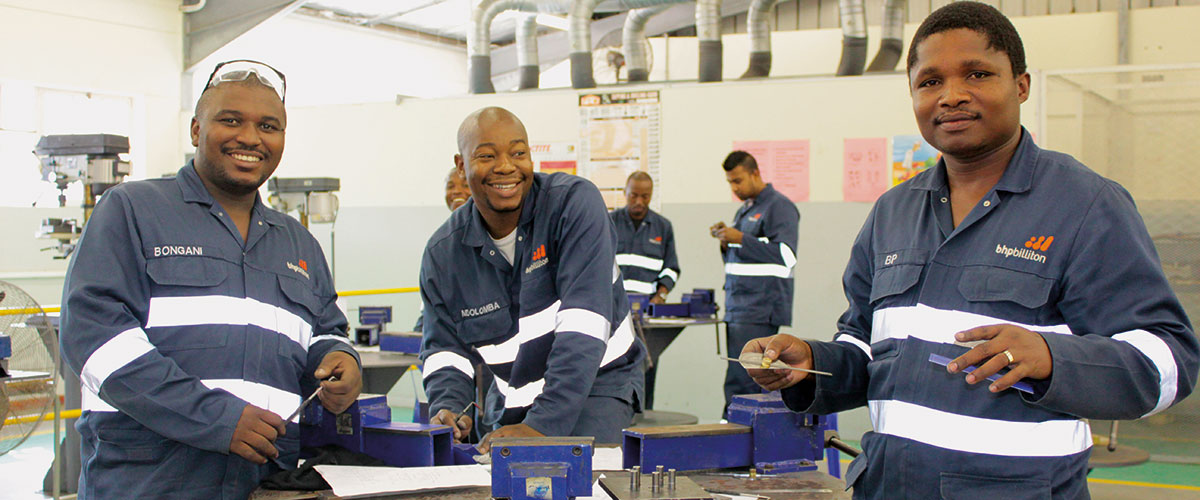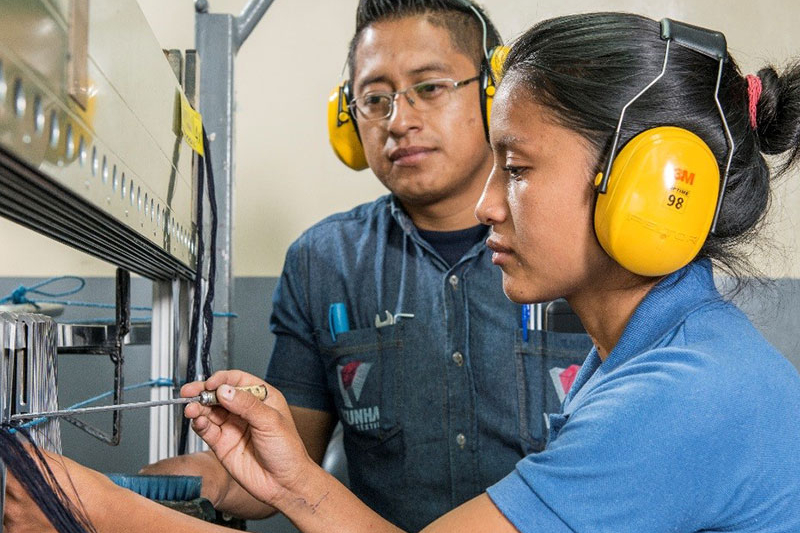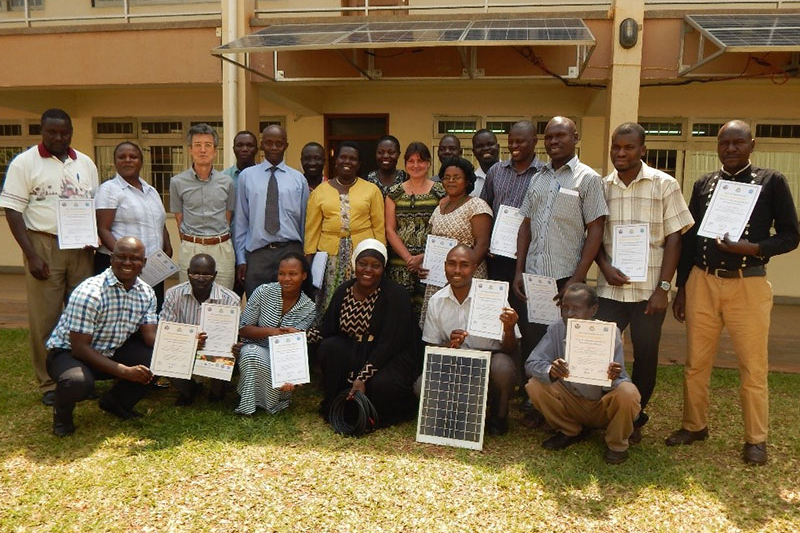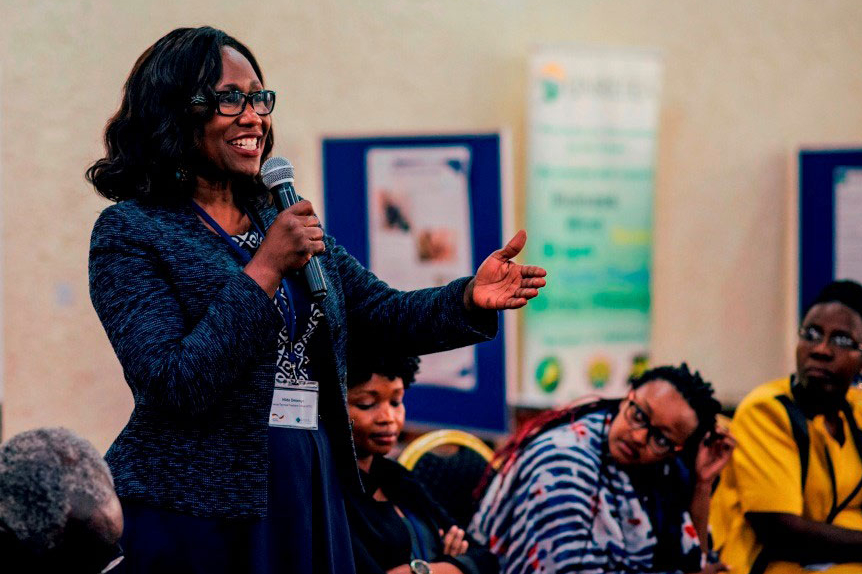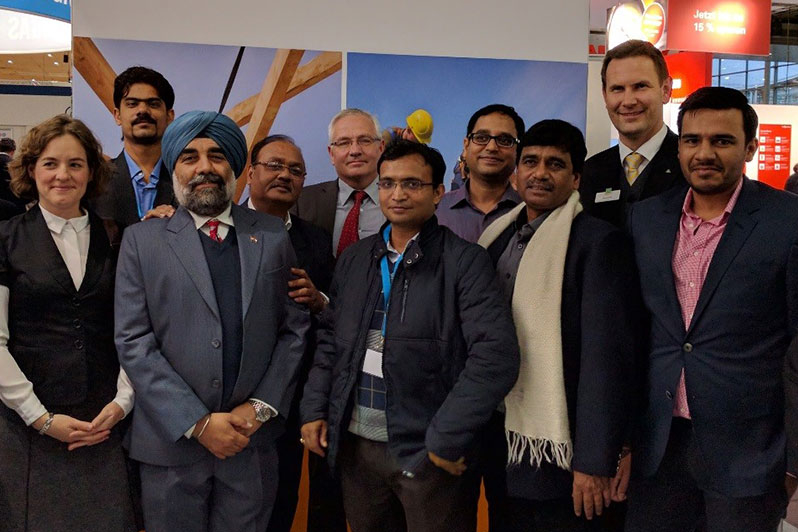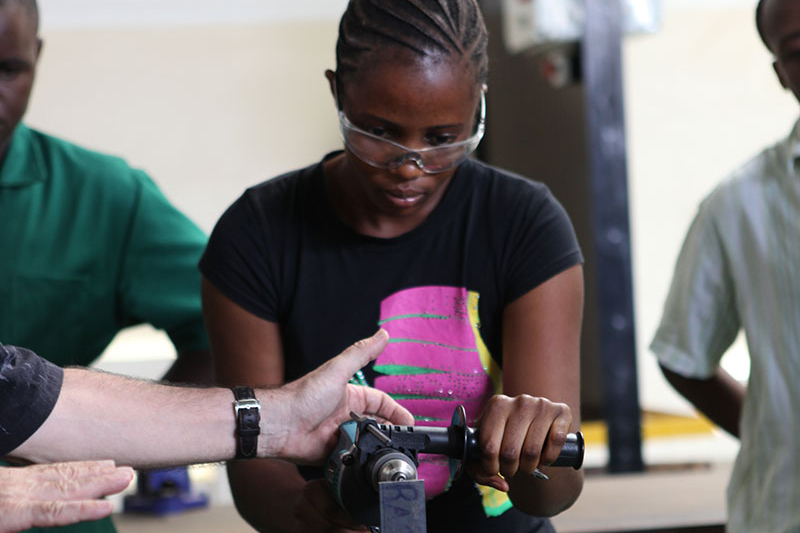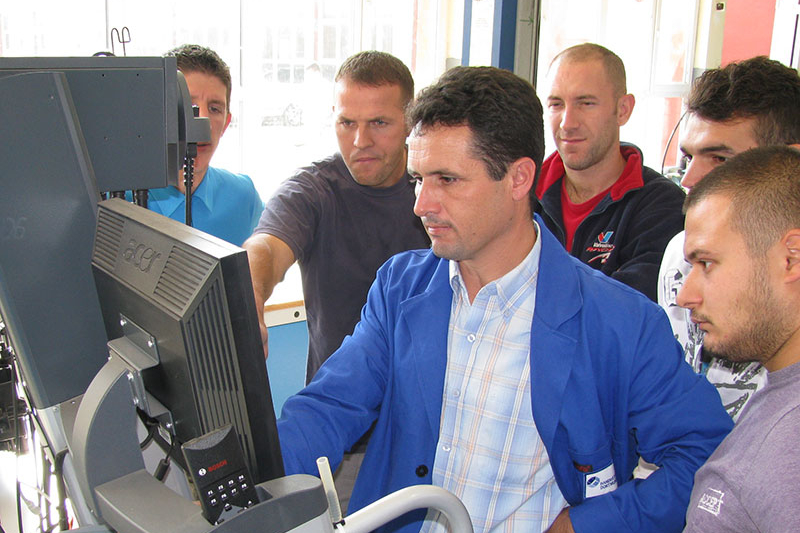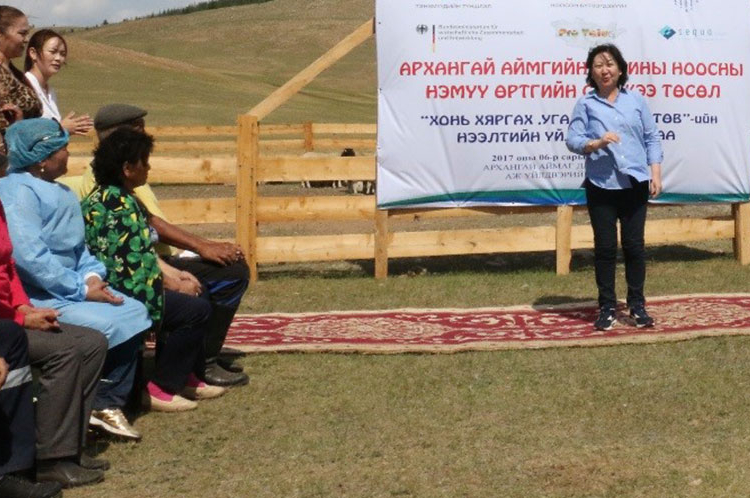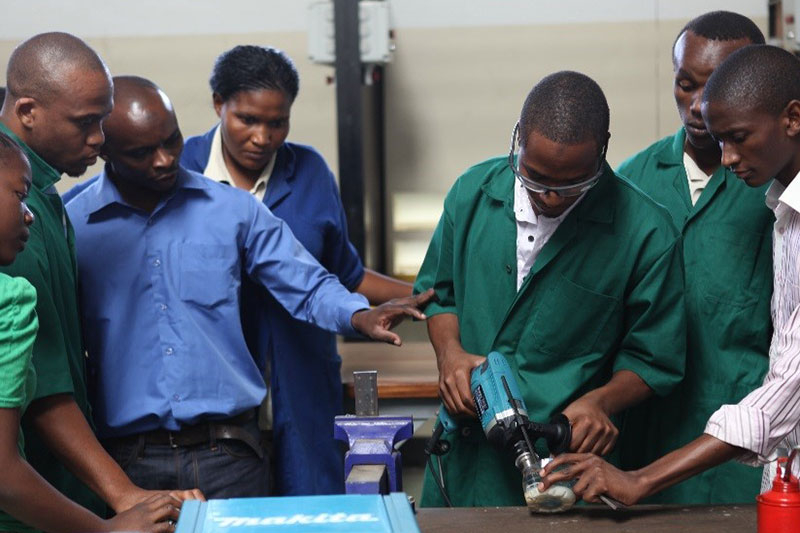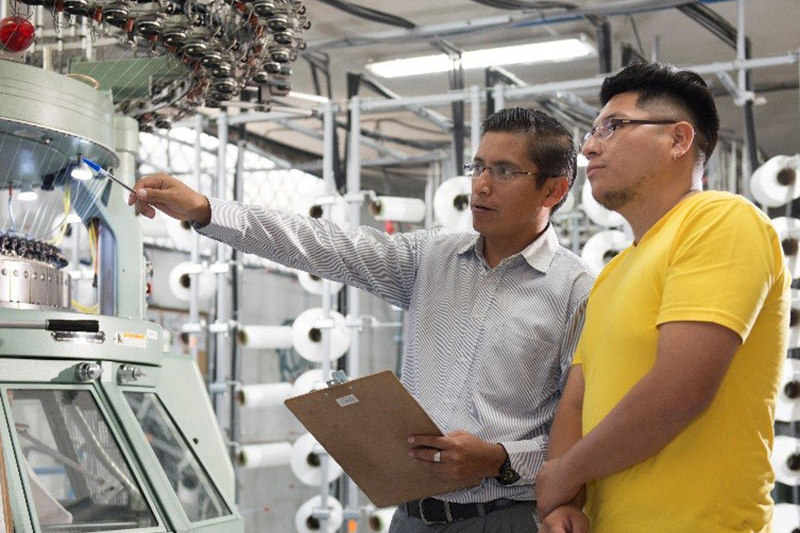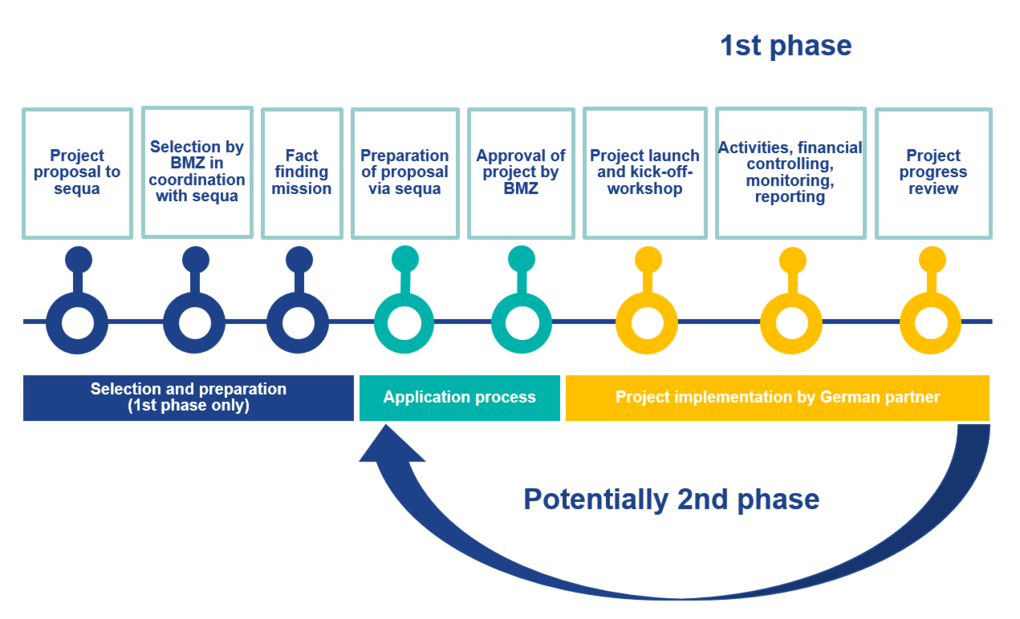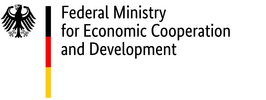

The partnership programmes KVP + BBP
Business Membership Organisation Partnerships (KVP) and Vocational Education and Training Partnerships (BBP) are programmes funded by the Federal Ministry for Economic Cooperation and Development (BMZ) to fight poverty through the promotion of sustainable economic development. The programmes are intended to
- mobilise the experience and know-how of German business membership organisations (BMO) for development cooperation,
- enable direct collaboration of non-government agencies and
- pick up on private sector initiatives.
In both programmes, German chambers and associations act as implementing organisations which carry out projects self-responsibly. In close cooperation with their local partners they plan and execute the project objectives and measures. The staff assigned is recruited from the German partners as well as from among other German and international experts.
sequa has the responsibility to steer and administrate the KVP and BBP programmes and apply for, plan, report on as well as financially manage the respective KVP and BBP projects.
Contact

The Business Membership Organisation Partnerships as well as the Vocational Education and Training Partnerships are part of the Federal Ministry for Economic Cooperation and Development's (BMZ) cooperation with economic actors under the umbrella brand Partners in Transformation (German only).
KVP Projects
In KVP projects German business chambers and associations cooperate with chambers and associations in the partner countries. They contribute their capacities and know-how to support private sector development. The projects aim at strengthening local institutions as corporate service providers and interest representatives for small and medium-sized companies. Core areas of cooperation are:
- Improving the internal structures and management of the local project partner
- Establishing new membership services
- Supporting advocacy efforts directed at better framework conditions
sequa launched the KVP Programme in 1991. More than 300 KVP projects have been implemented in more than 80 developing countries, emerging markets and transition economies. Some 70 German chambers of skilled crafts, industry and commerce, sector associations as well as employer organisations have participated as project partners, cooperating with more than 400 chambers and associations in the partner countries.
BBP Projects
BBP projects aim to provide the partner countries with the support necessary to achieve stronger participation of local companies and a more practice-oriented vocational education and training system. BBP projects mobilize the vocational training know-how of German chambers and associations as well as their affiliated vocational training institutes. The chambers and associations are actively involved in the BBP projects they implement and support selected partner organisations, e.g. vocational schools, chambers, and associations, in establishing demand-oriented vocational education and training. Core areas of cooperation are:
- Organisational and management consulting
- Consulting on the establishment and expansion of cooperative training forms
- Promotion of the dialogue between public training institutions and companies
- Training of vocational school teachers and in-company trainers
- Introduction of practice-based model training courses
- Assistance for demand analyses, curricula, teaching and examination material etc.
The BBP Programme was jointly developed by sequa and the BMZ in 2010. More than 40 German partners have participated in more than 60 BBP projects ever since.
Process und implementation
German chambers and associations as well as their affiliated institutions in Germany may propose KVP and BBP projects. As a general rule, they already have contacts in the respective partner country and have developed a project idea in collaboration with local partners. They produce a project proposal draft and submit it to sequa, which can then demand the clarification of individual points or additional information.
At regular intervals, the BMZ selects proposals from the pool of project drafts that will be assessed and developed further. In these cases, sequa organises a fact-finding mission to the partner country for representatives of the German partner as well as an external expert. This assessment has the objective to comprehensively examine and plan the project and includes recommendations for the design of the project (partner constellation, impacts, target hierarchy, activities, indicators etc.).
Once a project is recommended, sequa submits a grant application to the BMZ. If this application is approved, the German project partner will receive funding for the implementation of the project in accordance with the objectives and measures stipulated in the application. The project duration usually is up to three years. Subsequent to the implementation of a positive project progress control at the end of the first project phase, it can be applied for a second up to three-year project phase.
The German partner is responsible for the implementation of the project; for the pursuant tasks as well as for coordination, consulting and training on the ground, the German partner allocates either internal or external personnel for long-term and short-term assignments. In addition to consulting and training, funding for material expenses, study and delegation trips as well as public relations activities can also be part of the project cooperation. Depending on the type and requirements of the project, the BMZ grants funds up to 900,000 EURO per project phase.

